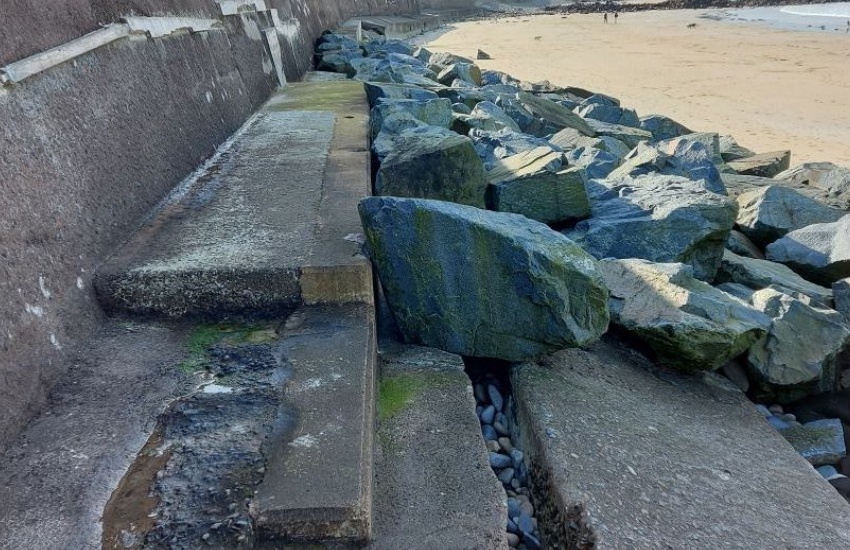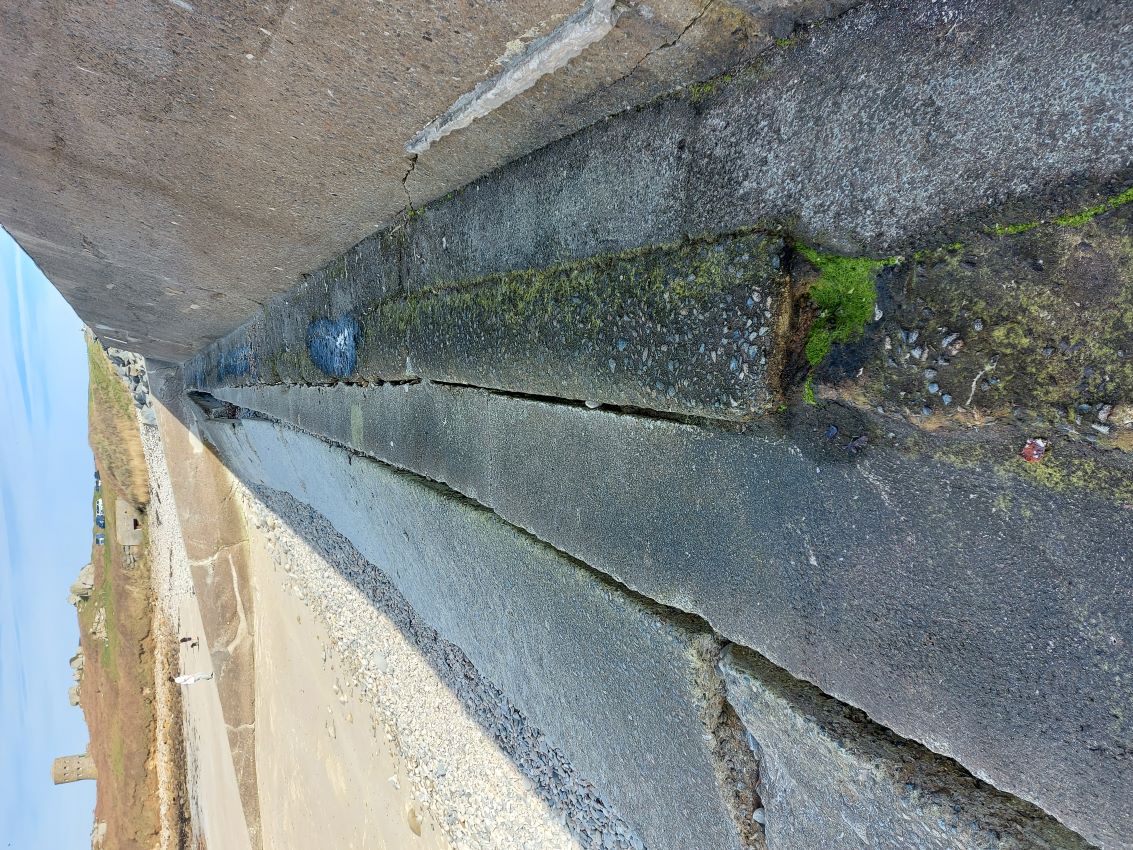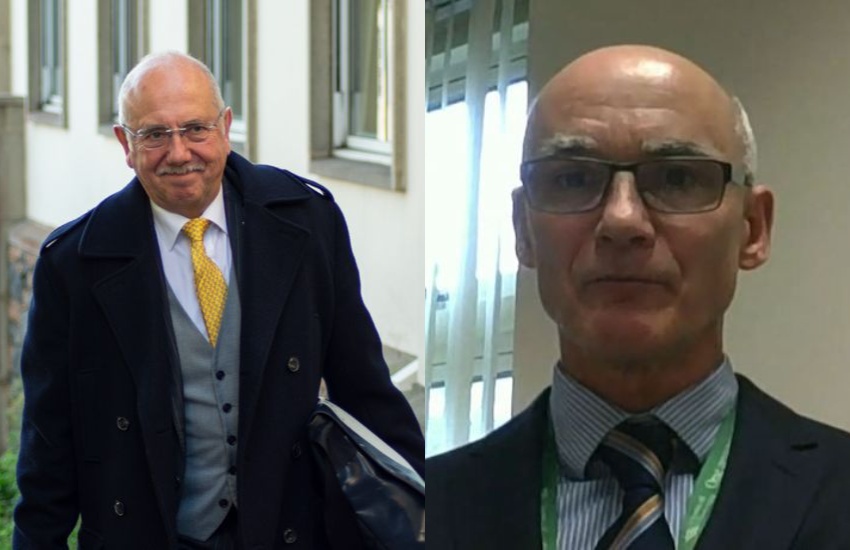

Welcome to the first edition of EYE ON POLITICS from Express. We’ll be digging deeper behind the headlines to help you make sense of the goings-on in Guernsey politics. Including taking a closer look at the agenda before meetings of the States’ Assembly.
Here’s your EYE ON POLITICS digest for the States’ meeting which starts tomorrow…
A relatively recent feature of States’ meetings is the requirement for each president periodically to update the States’ Assembly on the work of his or her committee.
Most committee presidents find statements invaluable. They get up to 10 uninterrupted minutes to talk about their committee’s interesting projects entirely on their terms.
Statements also provide presidents with the perfect reason to require their officials to tell them everything that is going on because they are followed by up to 20 minutes of questions without notice when anything could be fired at them.
Which, of course, is also why some committee presidents dislike these statements. Indeed, earlier this term, one or two of them tried unsuccessfully to get rid of statements or at least to reduce their frequency.

Pictured: Deputy Andrea Dudley Owen (left) and Deputy Lindsay de Sausmarez are due to make statements at tomorrow's States' meeting to update deputies on their Committees' current and future work.
Making statements and facing questions tomorrow are the Presidents – or, if they are unavailable, the Vice-Presidents - of the Committee for Education, Sport & Culture, Deputy Andrea Dudley-Owen, and the Committee for the Environment & Infrastructure, Deputy Lindsay de Sausmarez.
Deputy Dudley-Owen is likely to want to share news of the education strategy about which she wrote enthusiastically in Express yesterday. The States can probably be split into thirds on the education strategy: one-third who think it’s great, one-third who think it contains little but meaningless platitudes and therefore dislike it, and one-third who agree with them but therefore think it’s harmless.
Deputy Dudley-Owen usually also gets questions on progress of the reorganisation of secondary and further education and the 52-year-old (and counting) Education Law and sometimes on school inspections and the curriculum.

Pictured: The States have delegated authority to the Policy & Resources Committee to sign off capital costs of up to £105million for the reorganisation of secondary and further education.
Deputy de Sausmarez may escape questions on her contentious proposal to look at keeping a portion of the Town seafront free of vehicles because that has been passed to the States’ new development agency and on her Committee’s work to shore up the unstable anti-tank walk at L’Ancresse East because the latest instalment in that debate has its own slot later in the meeting.
Other coastal defences, energy policy and housing – if any members have remembered that general housing policy is a matter for Environment & Infrastructure – may be more likely to feature.
After statements, there is an opportunity for questions to committee presidents which are notified in advance but can also lead to supplementary questions without notice.
There are three sets of what appear to be well-constructed questions tomorrow – nine questions in all: from Deputy John Gollop on civil servants’ pay and pensions; from Alderney Representative Alex Snowdon on the unfortunate failure to serve Alderney by air over the long Easter weekend; and from Deputy Gavin St Pier on what he considers to be the glacial pace at which the States are moving towards what he fears is an inevitable conclusion - that the island will not offer refuge to anyone fleeing war in Ukraine who does not have family in the island already.

Pictured: Deputy Gavin St Pier wants the States to find ways to accept refugees fleeing Ukraine who do not have existing family links with the island.
At their last meeting, the States approved a motion from Deputy David De Lisle to debate a report which monitors performance against the Island Development Plan, but deferred the debate until this meeting.
The monitoring report is already quite out of date – covering the years 2019 and 2020. And, though important to policymakers, much of it is anodyne to anyone who is not passionate about statistics on things like the availability of industry, storage and distribution accommodation, dwellings under construction and the profile of office accommodation.
What some deputies really want to get their teeth into is what they see as the shortcomings of the Island Development Plan itself: insufficient protection of green spaces, too many demands on developers to include cheaper housing in new developments, too many constraints on States’ projects which should be important enough to sidestep normal planning rules, etc.
The question, then, is how forgiving the Presiding Officer, the Bailiff, will be of speeches which drift from strictly what is in the monitoring report to more general and controversial planning matters of greater interest to almost everyone present.

Pictured: The anti-tank wall at L'Ancresse will be debated by the States again at their meeting which starts tomorrow.
The States have a reputation – partially earned – for endlessly redebating major issues and taking their time to reach conclusions on them. Solid waste, secondary education and taxation are among the best examples.
For around 80 years, everyone has known that the wall was built by the German occupying forces in an effort to repel tanks which they feared might arrive from the north, and everyone agrees the tanks are no longer expected. For not quite as many years, but still rather a long time, everyone has watched the eastern end of the wall gradually deteriorate to the point where propping it up requires one of the most iconic bays in the island to be decorated with tonne after tonne of rock armour and soon permanent fencing just above the beach.

Pictured: The Committee for the Environment & Infrastructure says its latest proposals for the wall are less expensive than the alternatives, at least in the short term.
This week, the Committee for the Environment & Infrastructure will ask the States to back this approach for the next eight years at least, potentially at a cost of many hundreds of thousands of pounds, and with no plan to deal with the underlying problem which will be even greater at the end of the stop-gap period.
The Committee’s temporary plan to forget about the wall for a bit goes with the grain of prevailing opinion, which for now has heard enough about the issue, and is sufficiently inoffensive to enough people that it should get through the States unscathed. Though there may be a few voices in debate asking whether this is good politics rather than good policy.
In fact, this week’s meeting specialises in subjects most people have had enough of – covid-19 being another.
The Policy & Resources Committee is offering “a programme of debriefing reviews” to be carried out internally. They are also offering an alternative – a genuinely independent strategic review – for those who want something more robust.

Pictured: The States will be presented with three options for reviewing the island's response to covid-19: an independent review, an internal review or completely dropping the idea of a review.
There is one item on the States’ agenda this week which may or may not be debated. It is an appendix report containing the annual summary of activity relating to the regulation and revalidation of doctors.
An appendix report is normally not debated unless a motion is laid to debate it which is supported by a majority. As Express reports today, Deputy Gavin St Pier has submitted just such a motion. Interestingly, his motion is seconded by Deputy Tina Bury, the Vice-President of the Committee for Health & Social Care, which indicates that there may just be something to see here, as it were.
Deputy St Pier wants to debate the report to bring out into the open “systemic and cultural issues of concern” about a part of the health service raised by families with whom he has been working for some time.

Pictured: The annual report on the regulation and revalidation of doctors is submitted to the States by Deputy Al Brouard's Committee for Health & Social Care and is authored by Dr Peter Rabey (right), the island's Medical Director.
All eyes will be on Deputy Al Brouard, the President of the Committee for Health & Social Care.
If he is relaxed about debating the report, it is inconceivable that the States will refuse. If he does not want it debated, it is possible that he will be able to muster enough support to defeat the motion to debate.
From what Express understands of the issues involved, this could be the most interesting part of this week’s States meeting if deputies allow the report to be debated.
The full Order Paper for this week's meeting is available by clicking HERE.
Comments
Comments on this story express the views of the commentator only, not Bailiwick Publishing. We are unable to guarantee the accuracy of any of those comments.